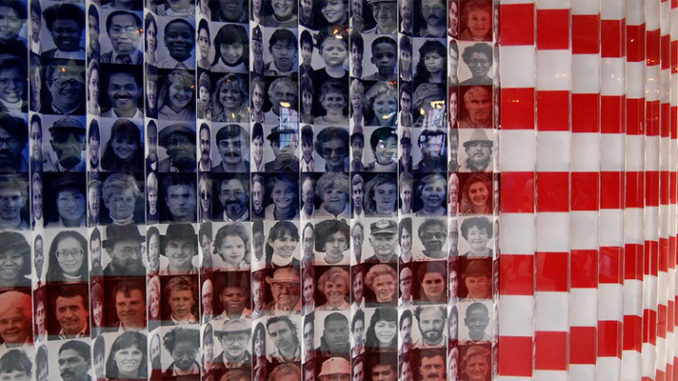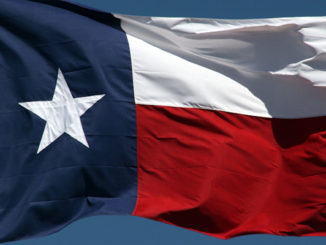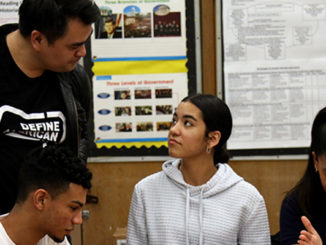
by
When America has really needed something, an immigrant has often been there to provide it. A welcoming attitude would still enrich our country.
On Nov. 13, 2013, celebrity chef José Ramón Andrés Puerta and his wife, Patricia, did what modern couples do when blessed with good news. They shared it on social media. “People of America!” José tweeted. “4 hours ago my wife and I became AMERICAN CITIZENS. Thanks to all for being part of our world.”
A native of Spain, José Andrés is the man who brought small-plate dining to America at a tapas restaurant named Jaleo, in Washington, D.C. in 1993. In the meantime, he opened three more Jaleos and 20 other eateries in our hemisphere, and became mired in an imbroglio with Donald Trump over the candidate’s descriptions of Mexican immigrants.
It’s a political cliché to proclaim America a country of immigrants. Today, the line is now tinged with partisanship, especially by progressives, who use it to rebuke President Trump and his “big beautiful wall” and travel ban — or the idea that government should enforce immigration laws. Meanwhile, conservatives chafe at the notion that their desire to control America’s borders somehow makes them racists. This debate is not a conversation; it’s how the two major political parties polarize the electorate and extract financial contributions from their favored interest groups.
There’s a more productive way to talk about this. The basic question is whether a welcoming attitude still enriches our country. While researching my new book, ON THIS DATE: From the Pilgrims to Today, Discovering America One Day at a Time, I kept encountering the same phenomenon: When America really needed something — an idea, an invention, a new way of looking at life — an immigrant was often there to provide it.
In 1939, Franklin D. Roosevelt needed to know that scientists in Germany were working on an atomic bomb. Albert Einstein, who’d come here from Germany as a Jewish refugee in 1933, was tasked with informing the president. After reading Einstein’s letter, FDR launched the Manhattan Project. Among the scientists who built the bomb before Hitler could get his hands on the technology were Hungarians Edward Teller and Leo Szilard, Italian-born Enrico Fermi, and German James Franck.
When America needed freedom of the press, an émigré named John Peter Zenger was there to show the way. Zenger arrived from Europe as a teenager in 1710 and was apprenticed to New York’s first printer, William Bradford. After striking out on his own, Zenger got crosswise with William Cosby, a petty autocrat dispatched from London to be the colonial governor of New York.
“No nation ancient or modern has ever lost the liberty of freely speaking, writing or publishing their sentiments, but forthwith lost their liberty in general and became slaves,” Zenger wrote. Deaf to such logic, Cosby ordered Zenger’s arrest. The governor misjudged his man. From his jail cell, Zenger penned an apology. Not to Cosby, but to his readers — for missing the Nov. 18, 1734 edition of his paper.
When Zenger’s case came to trial, a third foreign-born player entered our drama: Philadelphia lawyer Andrew Hamilton, a Scotland native. The prosecution argued that England’s libel laws were the de facto laws of New York; therefore, any defamation against the crown or its agents was merely a matter of proving the author’s identity. Truth was no defense. Hamilton challenged this logic. Without exactly explaining why, he argued that English law should not apply in New York. The trial judge didn’t buy it, but Hamilton’s strategy was to talk past him, straight to the jury and, by implication, the court of public opinion.
“The question before the court and you, gentlemen of the jury, is not of small or private concern,” Hamilton intoned in his closing argument. “It is not the cause of the poor printer, nor of New York alone. No! … It is the best cause. It is the cause of liberty!”
He was going for nullification—and got it. When the jury foreman called out the “Not guilty” verdict, hurrahs rang through the courtroom. Half a century later, Gouverneur Morris, one of the Founding Fathers, wrote: “The trial of Zenger in 1735 was the germ of American freedom, the morning star of that liberty which subsequently revolutionized America.”
John Winthrop, a Puritan who sailed to these shores 80 years before Zenger, urged his flock to consider themselves “a city upon a hill,” adding that “the eyes of all people are upon us.” John F. Kennedy was fond of this imagery, as was Ronald Reagan, who added the word “shining” to the description of what America means to the world.
In his farewell address as president, Reagan reminisced about a U.S. ship plying the South China Sea in the 1970s when it encountered a leaky boat crammed with Vietnamese refugees. “Hello, American sailor!” one of the migrants called to a U.S. serviceman standing on deck. “Hello, Freedom Man!”
José Andrés’ didn’t first glimpse America from a dilapidated little boat: He was a sailor in the Spanish navy perched on a mast as his ship o’ war sailed into New York harbor. Yet the effect was the same.
“I could spot the Statue of Liberty reaching proudly into the open, endless American sky,” he recalled. “At night, I would often wonder whether that sky was the explanation for the stars on the American flag — put there so the world would know that this is a place of limitless possibility, where anyone from anywhere can strive for a better life.”
Although I wouldn’t claim America needed tapas cuisine the way it needed freedom of the press or the atomic bomb, when Andrés arrived, his only possession of value was a set of carving knives, and now he has restaurant empire.
That’s his story, and ours, too.
Carl M. Cannon is the Washington bureau chief of RealClearPolitics. His latest book, ON THIS DATE: From the Pilgrims to Today, Discovering America One Day at a Time, was published this month. Follow him on Twitter: @CarlCannon.




